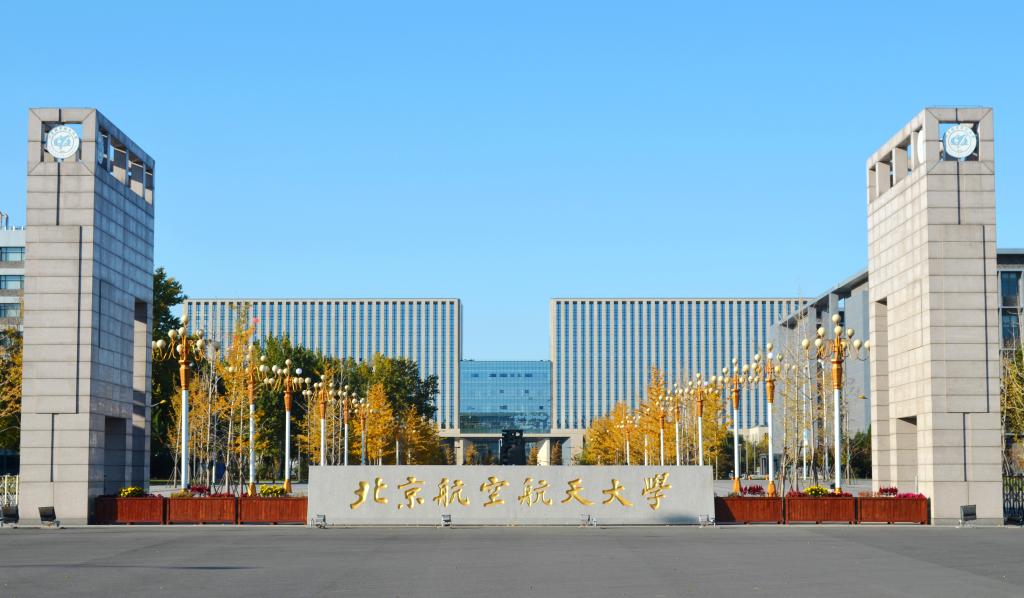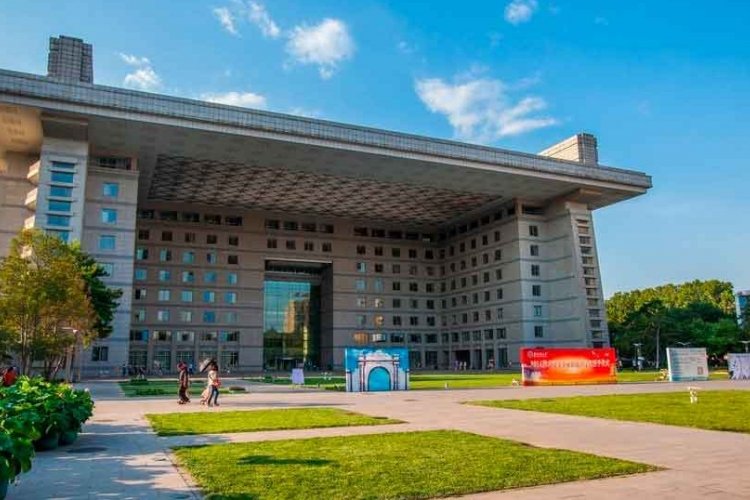Which Beijing University Language Course is Best? Part 2: Beijing Normal, BFSU, BISU, Beihang, CYU
Coming to Beijing to learn Chinese can be a daunting experience, particularly when there are so many different universities and language courses to choose from. Everyone has different reasons for coming to China to learn Chinese, but those who choose Beijing over another city, like Shanghai, are usually seeking a more ‘authentic’ experience in the capital – but maybe we’re biased? In this blog post, we will be comparing the experiences of students who have been learning Chinese at Beijing Normal University (BNU), Beijing Foreign Studies University (BFSU), Beihang, Beijing International Studies University (BISU) and China Youth University of Political Studies (CYU). Read the first part of our analysis between BLCU, Peking, Tsinghua here.
Situated slightly further away from the Wudaokou student bubble, these universities attract their fair share of international students who come to learn Chinese thanks to their extensive links with many universities across the world.
Originally a teacher training university, Beijing Normal is another reputable university that now offers a popular Chinese language program. Don’t get confused between BFSU and BISU – both are China’s oldest and best-regarded foreign language universities, with an emphasis on teaching Chinese to international students. Better known for engineering and aeronautical research, Beihang University also offers intensive Chinese language classes. While CYU usually focuses on educating the future leaders of China, it also offers intensive Chinese language programs from 8am-5pm if you are up to the challenge.

Teaching
Beijing Normal University
Beijing Normal University’s original purpose as a teacher training university (pictured above) pays off as most teachers have been praised as “very engaging,” “pretty good,” and “awesome” by students, despite giving them a lot of homework. At the beginning of the first semester, you must take a placement test to decide your level, but later on it is based off your exam results. Lessons are varied with a good curriculum, from speaking and classical Chinese to newspaper analysis; the textbooks used depend on the teachers but can be challenging.
BFSU
At BFSU, the intensive Chinese language course is four to six hours a day, from Monday to Friday. The placement test doesn’t lock you into a level as you are still able to choose, but you may have to take additional tests to see if you are able to keep up in a higher class. Each teacher takes a specific class with good textbooks and classmates of the same fluency for a good overall learning experience.
CYU
From 9am to 5pm every day, CYU’s Chinese language classes are divided into writing, speaking, listening, and reading classes for a varied but intensive program. Teachers use debates and discussion about society, entertainment, and current affairs to keep classes interesting. Students must take a placement test at the beginning of the semester, consisting of a written and spoken test.
Beihang University
Beihang University offers intensive language classes with a total of 20 hours per week and a small number of students per class to maximize your learning experience. The placement test is relatively relaxed and it is possible to switch classes at the beginning of the semester if the class isn’t right. One student found his first teacher enjoyed giving out homework to memorize a text to be recited in class. After switching classes, he found his teachers were more interesting and gave less memory-based homework.
BISU
There are two programs at BISU with varied intensity: the General Chinese Language program (8-11.25am) and the Preparatory program (all day). Everyone takes a written and oral placement test but it is possible to discuss the program with the teacher; they will take into account how long you've studied Chinese and what level you want to be placed in. As always, the teaching varies. Some teachers can be very strict and rigorous; others transform classes into interesting discussions and debates. Homework is manageable and usually involves preparing for upcoming discussion topics. Textbooks and teaching materials are varied, interesting, and understandable.

Accommodation
If you are not prepared for squat toilets and shared bathrooms, some international students’ dormitories may be quite a shock, but we can guarantee it is nicer than the dormitories of four, six or more people that house Chinese undergrads. Off-campus accommodation is easy to find in Wudaokou or further out but is comparatively expensive, so most students prefer to live on-campus for affordable prices, convenience, and actually making 8am classes.
BNU
Applications for accommodation at BNU are online, although the website has been known to crash when the application window opens. Most international students are in single rooms with an ensuite bathrooms and 24-hour hot water. At the time of writing, Dormitory #2 is still under construction so BNU has an agreement with a hotel off-campus to house students at discounted rates.
BFSU
Dormitories are pretty good at BFSU (pictured above) located near canteens and classrooms with most students living in single rooms with an ensuite bathroom. If you miss out, there are more single rooms or shared rooms with an international roommate, both with shared bathrooms.
CYU
At CYU, international students share a room with another student of different nationalities in order to encourage students to practice their Chinese. There are no single room options available, but there is an ensuite bathroom and no electricity or water restrictions. It is only a five-minute walk from the dorms to the classrooms.
Beihang
At Beihang, double bedrooms and ensuite bathrooms with 24-hour hot water are the norm. Some students choose to live off-campus in shared apartments in Wudaokou, which is a 10-minute cycle away.
BISU
BISU provides comfortable dormitories for international students, who can share a double room with a private bathroom or a double room with a shared bathroom for the entire floor. On every floor (except the first floor), there is a public kitchen with a fridge and a hot water dispenser plus there is a TV in your room. Visitors can come to the dorm until 10pm or even stay over if they pay (about RMB 80).

Student Life
BNU is the most centrally-located of all Haidian universities, giving it handy access to Gulou, Wudaokou, and the heart of Beijing. The university campus is on the small side so there is no need for a bike unless you live off campus. All the facilities, like the canteens, restaurants, and shops, are within walking distance so there isn’t any real need to go further afield. Also, since it's located in between Gulou and Wudaokou, students living at Beihang have the best of both worlds with good transport links to the student bars in the north and the hutong scene in the south.
Both BFSU and CYU are located in the south of Haidian District, a little further away from the traditional hub of Wudaokou, but it is still easy to get into the city center on the subway. There is no need to buy a bike for either campus with everything within walking distance, although BFSU’s campus is split in half. The canteens are clean and cheap (one meal costing approximately RMB 9-15); if you can’t find anything you like, have no fear – the surrounding area is full of cheap, interesting restaurants featuring Yunnan and Xinjiang cuisine.
READ: Battle of the Language Courses Part 1: BLCU, Peking, Tsinghua
BISU (pictured above) is unusually not located in Haidian District but in Chaoyang District, closer to the city center. The campus location is unbeatable, situated near a bus station and between two subway lines (6 and Batong Line) – only 30 minutes away from Sanlitun. Societies at BISU welcome both international and Chinese students to join and practice their Chinese, regardless of fluency, and there is a club fair at the beginning of the year.
Overall Satisfaction
Beijing Normal – engaging teachers, interesting curriculum, the best of both worlds close to Wudaokou and the city center.
BFSU – flexible, well-taught language program, and a campus with good facilities.
Beihang – intensive, structured language program, location close to Wudaokou and Gulou, and good transport links.
BISU – two well-taught language courses, located in Chaoyang Distict, and comfortable dormitories with all the amenities.
CYU – intensive Chinese language course; everything from dormitories to debates in class encourage students to practice their Chinese.
Click here to read how these schools compare to BLCU, Peking, and Tsinghua.
See more articles by this author here.
Images: Beihang University, Roselinde, CUCAS, Wikimedia
Related stories :
Comments
New comments are displayed first.Comments
![]() DreamPlaza
Submitted by Guest on Thu, 05/11/2017 - 11:08 Permalink
DreamPlaza
Submitted by Guest on Thu, 05/11/2017 - 11:08 Permalink
Re: Which Beijing University Language Course is Best? Part 2:...
Beihang also has a short name as BUAA (Beijing University of Aeronautics and Astronautics)
Validate your mobile phone number to post comments.


